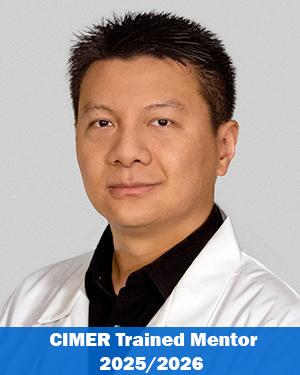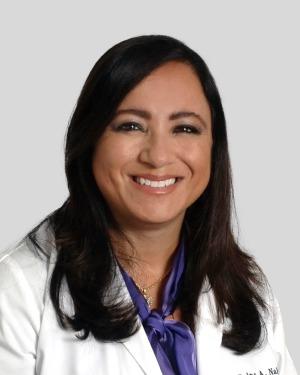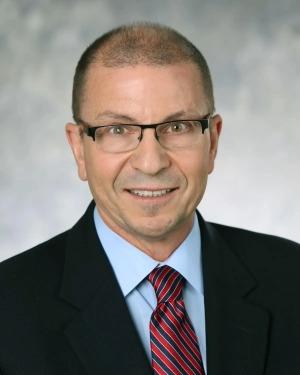Research News
07/21/2025
Cleveland Clinic Florida receives $1.4 million in Florida state funding for cancer research projects
Three Cleveland Clinic Florida researchers received funding from the Florida Cancer Innovation Fund to address problems faced by patients in the state.

Cleveland Clinic Florida has been awarded three grants totaling $1.4 million by the Casey DeSantis Florida Cancer Innovation Fund at the Florida Department of Health. These awards will support research projects that advance cancer care and patient support across Florida and beyond.
Learn more about the three research projects below.
Preserving heart health during cancer treatments
Cancer therapies can take a toll on the heart, sometimes triggering or worsening cardiovascular disease. As section head of Cleveland Clinic’s Cardio-Oncology Center, Diego Sadler, MD, sees these side effects firsthand. Dr. Sadler’s project implements the Global Cardio-Oncology Registry (G-COR), an online data platform his team designed with participants from over 100 locations worldwide that compiles information from cancer patients receiving cardiovascular care in a real-world clinical setting. Data sets at this scale can point to common problems and guide intervention and prevention recommendations.
“Three hundred facilities treat cancer in Florida, but only 5-10 facilities have cardio-oncology services,” he says. “To address this problem, we will implement our G-COR platform in six Florida hospitals as the first step to standardize and advance a model of cardio-oncology care in our state.”
The Florida Department of Health has awarded Dr. Sadler and his team a Florida Cancer Innovation Grant of $626,000 to implement this platform and assess its effectiveness in the State of Florida.
Developing artificial intelligence to support mental health during treatment
Receiving a cancer diagnosis and undergoing treatment can be devastating. Zeina Nahleh, MD, Cleveland Clinic Florida’s Vice Chief of the Cancer Institute, Regional Hematology Oncology chair and Director of the Egil and Pauline Braathen Center/Maroone Cancer Center, believes caring for her patients’ emotional wellbeing is just as important as caring for their physical health.
“Addressing cancer-related psychological distress is critical to improving patient outcomes,” she says. “Non-pharmacological interventions, including psychotherapy, relaxation techniques, and mindfulness, are helpful in alleviating distress in patients with cancer.”
Building on her research focused on art and music therapies, Dr. Nahleh and her team have developed an artificial intelligence-powered application that offers therapeutic tools tailored to cancer patients. Her team’s goal is to use AI to remove financial, logistical and geographical barriers to receiving supplemental care that improves quality of life. Many of Dr. Nahleh’s patients travel for appointments and cannot commit to more in-person time.
A $142,784 grant from the Florida Innovation Fund will help the team evaluate its effectiveness in supplementing traditional psychotherapy in patients seeking treatment.
Creating new therapies for treatment-resistant cancers
Some of the most aggressive and life-threatening cancers resist or become resistant to treatment, leaving patients and families with few options. Some of these cancers include certain forms of Non-Hodgkin lymphoma, triple-negative breast cancer, and diffuse intrinsic pontine glioma (a devastating pediatric brain tumor with no effective therapy to date).
“These cancers, and other treatment-resistant cancer types, are major threats to public health in our state, underscoring the need to develop new treatment strategies,” says Jun Zhao, PhD, who runs a laboratory in Cleveland Clinic’s Florida Research & Innovation Center.
Dr. Zhao’s team, co-led by Vara Prasad Josyula, PhD, Director of Diagnostics & Therapeutics at Cleveland Clinic Innovations, recently developed a new panel of compounds that block a critical class of enzymes called PIPK in cancer cells. PIPK enzymes act like master switches that control some of the most important processes in our cells, including growth and survival. For this reason, PIPKs in cancer cells are attractive drug targets.
The team has already created over 100 compounds based on the initial screen, some of which outperform existing compounds in clinical trials. The Florida Cancer Innovation Fund awarded Dr. Zhao and the team ~$572,000 to perfect their compounds and prepare them for eventual clinical trials, introducing a sorely needed treatment option for some of the region’s most vulnerable cancer patients.
Featured Experts
News Category
Related News
Research areas
Want To Support Ground-Breaking Research at Cleveland Clinic?
Discover how you can help Cleveland Clinic save lives and continue to lead the transformation of healthcare.
Give to Cleveland Clinic

